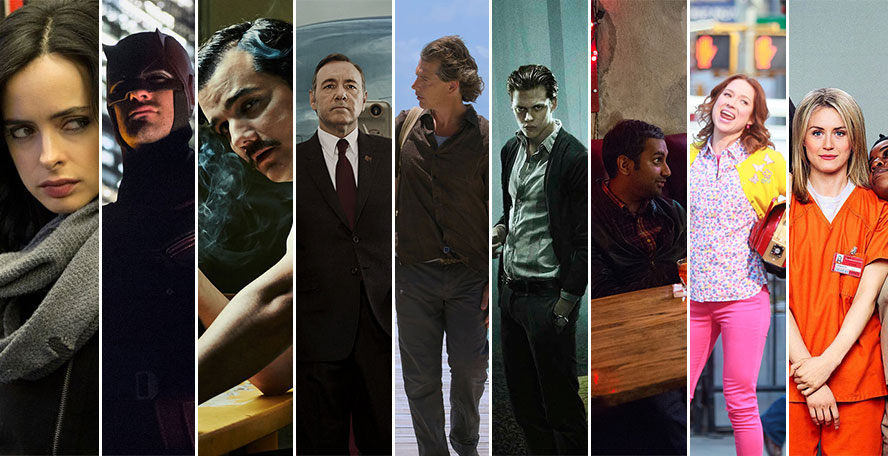Where TV series of old tended to stick more rigidly to a procedural format, telling their stories within self-contained episodes, we’ve begun to see more and more shows embrace serialised storytelling. Arts Editor, Mikhail Hanafi, explores the trend.
With shows like Breaking Bad, Mad Men and Game of Thrones weaving complex, elaborate stories across seasons, it’s a development in storytelling that has allowed television to grow as a genre, as showrunners and writers are better able to bring a depth to the medium through sustained storytelling. That just didn’t really exist before to the degree that it does now, aside from in tiresome soaps, and is a major reason why the 2000s onward is called ‘the golden age of television.’ As of late, however, there’s been a bothering rise of shows which seem to interpret ‘serialised television shows’ as meaning ‘really, really long movies’.
Last month saw Netflix release the second season of its immensely popular original show Stranger Things to massive fanfare. An estimated 15.8 million people watched the premiere episode within the first 3 days of its release. By all accounts, the show is a cultural phenomenon. What sets Stranger Things (and much of Netflix’s other original programming) apart from traditional TV is that instead of putting out one episode every week, they drop an entire season in one go. An estimated 360,000 people binge-watched all 9 episodes within 9 hours of release. Jump on Twitter and you’re likely to see a tweet about how Stranger Things 2 took up someone’s entire weekend. Binge watching isn’t just a thing that people do to catch up on a show anymore; it’s become a legitimate way to consume television, and Netflix is using this to their full advantage.
But this distribution strategy hasn’t just changed how people watch these shows, it’s also changed the way these shows are written and made. Netflix shows are often described as being ‘10-hour-long films’ instead of ‘just’ TV shows. Stranger Things feels like a 9-hour-long 80s horror film. Daredevil feels like a 10-hour-long Marvel film. Netflix’s popular dark comedy prison drama Orange Is The New Black fully embraced this idea in its fifth season, which stretched out the events of a single day across its 13 episodes.
One of the main criticisms of Orange Is The New Black’s latest season was that nothing really happened in each episode. The season as a whole had the structure of a story — e.g. a beginning, conflict, rising action, climax and conclusion — but those elements were more difficult to find in each episode, and that’s a major, fundamental storytelling flaw for a television series. Compared to the previous season, which achieved a Metacritic score of 86/100, season five was met with a lukewarm 67/100. It’s a great example of where this model can fall short and highlights how Netflix often fails to understand how to properly execute a serialised tv show.
Before I incite fan backlash, don’t get me wrong: I loved Stranger Things, and I think that it’s a well-written show. But when I look back at the whole show, it’s difficult to pick out individual stand-out episodes (save for a single, very polarising stand-alone episode in season two). Compare that to a show like Breaking Bad, which manages to make compelling episodes which stand on their own merits but still build upon each other to craft a larger story. The best serialised television shows don’t set out to make really long films, they aim to make individual episodes which build upon each other to tell a larger story. And let’s face it: Stranger Things even titles itself like a film. It’s not Stranger Things: Season 1 & 2, it’s Stranger Things and Stranger Things 2.
People often consider film to be more ‘highbrow’ than television, so when a television series is described as being ‘like a film’ it’s considered an achievement. But television is not film; its episodic structure makes it inherently different, and there’s a worrying trend of shows discarding the storytelling conventions of television to mediocre results. Shows can be binge-watched, but they shouldn’t be made to be binged. There’s an art to writing stories which work on both an episodic level and a bigger, season-wide level, and I’m not convinced that Netflix is doing that consistently enough.
Mikhail Hanafi
Image Credit: Hypable

